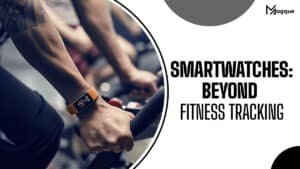In today’s fast-paced world, where everyone seems to be chasing their fitness goals, fitness trackers have become increasingly popular. But the burning question remains: Are they worth it?
The Hype Surrounding Fitness Trackers
Fitness trackers promise to revolutionize how we approach fitness by providing real-time data on our activity levels, heart rate, sleep patterns, and more. They claim to be the ultimate tool for optimizing workouts, improving sleep quality, and enhancing overall health and wellness.
The Reality Check
However, amid all the hype, it’s essential to take a step back and assess whether these devices live up to their promises. While fitness trackers can provide valuable insights into our health and fitness, they are not without limitations.
Pros of Using Fitness Trackers
- Accountability: Tracking your activity can help hold you accountable and motivate you to stay active.
- Insightful Data: By monitoring your activity levels, heart rate, and sleep patterns, you can gain insights into your overall health and make informed decisions.
- Goal Setting: Many fitness trackers allow you to set specific goals and track your progress over time, helping you stay focused and motivated.
Cons of Using Fitness Trackers
- Accuracy: Despite technological advances, fitness trackers are only sometimes 100% accurate and may provide misleading data.
- Dependency: Some users may become overly reliant on their fitness trackers, leading to an unhealthy obsession with hitting arbitrary activity targets.
- Cost: High-quality fitness trackers can be expensive, and the initial investment may only sometimes justify the benefits.
Making an Informed Decision
So, are fitness trackers worth it? The answer ultimately depends on your individual needs, preferences, and goals. If you thrive on data and enjoy tracking your progress, a fitness tracker could be a valuable tool in your arsenal. However, suppose you’re skeptical about the benefits or find constant monitoring intrusive. In that case, there may be better choices for you.
Conclusion
In conclusion, fitness trackers can be helpful in your fitness journey, providing valuable insights and motivation. However, it’s essential to approach them with a critical eye and not rely solely on their data. Investing in a fitness tracker boils down to personal preference and whether you believe the benefits outweigh the drawbacks.
For more health, fitness, and wellness insights, stay tuned to Magque!
FAQs
1. Are fitness trackers accurate?
While many fitness trackers claim to provide precise measurements of activity levels, heart rate, and sleep patterns, their accuracy can vary. Factors such as the quality of sensors, device placement, and user behavior can affect accuracy. It’s essential to consider this when interpreting the data provided by fitness trackers.
2. Can fitness trackers help me lose weight?
Fitness trackers can be a helpful tool in a weight loss journey by providing data on calorie expenditure, activity levels, and progress over time. However, they are not a magic solution and should be used with a balanced diet and regular exercise for optimal results.
3. Do fitness trackers improve fitness motivation?
Many users find that fitness trackers can boost motivation by providing real-time feedback on activity levels and progress towards goals. The gamification features, such as badges and challenges, can make exercise more engaging and fun. However, motivation levels can vary from person to person, and some individuals may not find fitness trackers as motivating as others.
4. Are fitness trackers worth the investment?
The value of a fitness tracker depends on individual preferences, goals, and budget. While some users swear by the benefits of fitness trackers in improving their health and fitness, others may not find them worth the investment. Before purchasing a fitness tracker, it’s essential to consider factors such as accuracy, features, and long-term utility.
5. Can fitness trackers replace medical advice?
While fitness trackers can provide valuable insights into health and wellness, they should not replace professional medical advice. Suppose you have any concerns about your health or fitness. In that case, consulting a healthcare professional for personalized guidance and recommendations is essential. Fitness trackers can complement medical advice but should not be relied upon as a sole source of information.
Read Also This:- Fitness Trackers: The Latest Innovations













